How is Cuba? Understanding The Country
Understanding Cuba
So how is Cuba? This country has been on our minds for a while now. We always said, “if we can’t make it to any of the Caribbean islands in our around the world journey, we will have to make it to Cuba.”
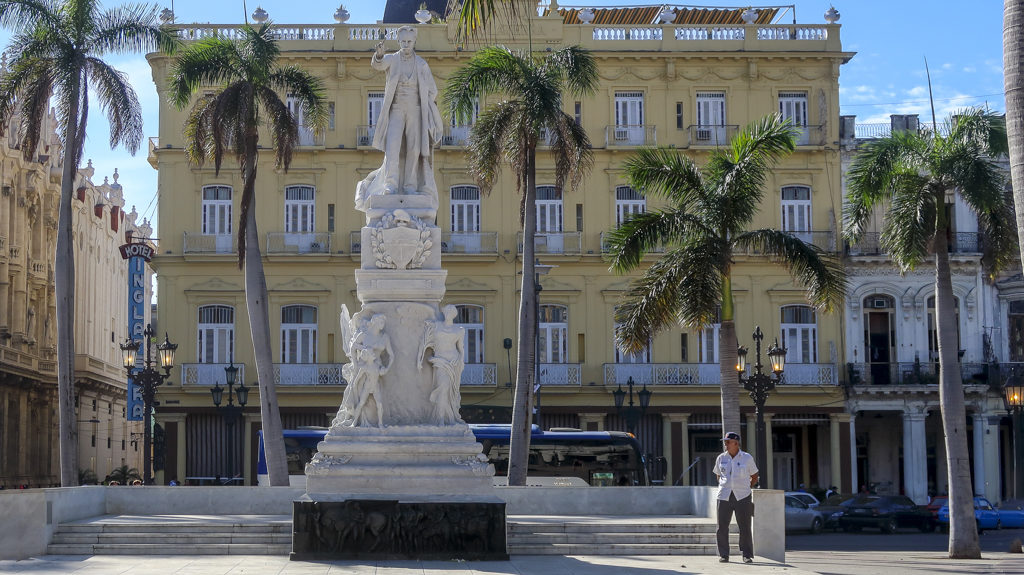
It’s not because we wouldn’t like to see the other ones, but having been to a few of them already (Trinidad and Tobago, St Lucia and Martinique), we thought we’d like to experience a different side of the Caribbeans.
To be honest, after seeing all the amazing photos on Instagram and after reading a few travel blogs we were convinced to add it to our itinerary. But like any other place we’ve been to, even with all the pre-research, we were in for a surprise.
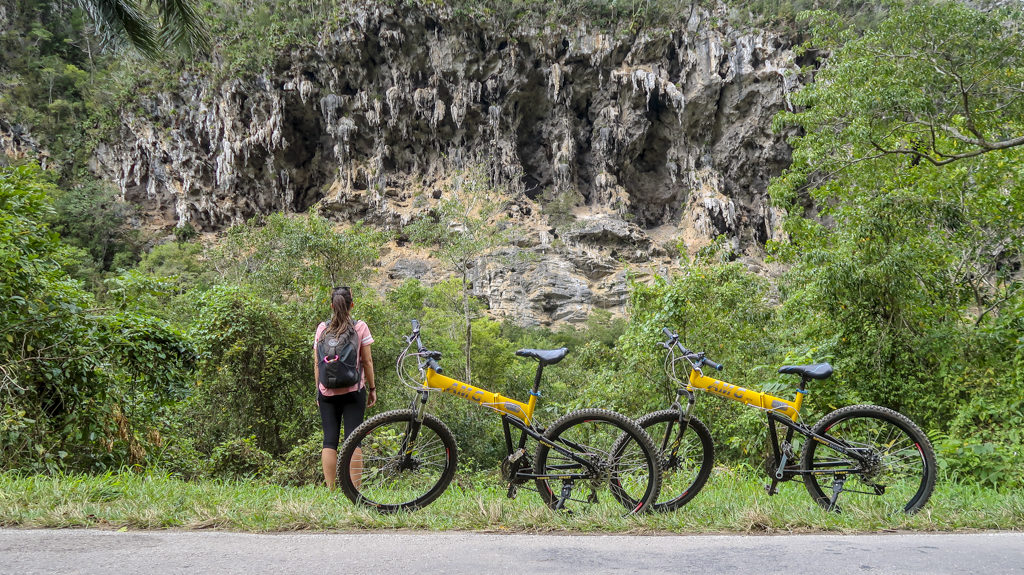
12 things we knew about the country (before going there)
1. It’s an island in the Caribbean Sea.
Located in the northern Caribbean where the Caribbean Sea, Gulf of Mexico and the Atlantic Ocean meet, it is home to the same beautiful white sandy beaches just like many of the Caribbean Islands.
Its closest neighbours are both the U.S. state of Florida and the Bahamas in the North, Haiti in the East, Jamaica
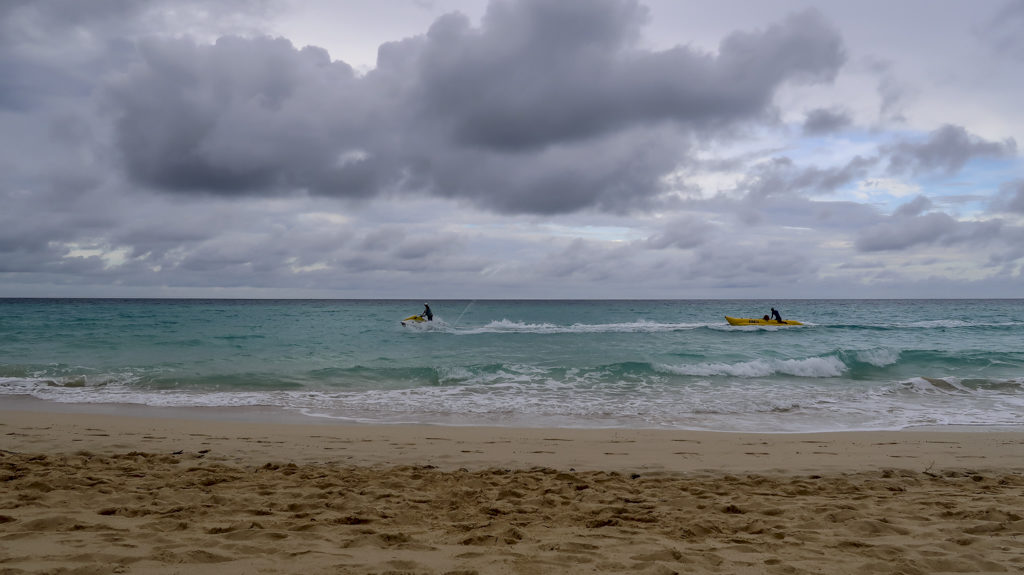
2. It is under communist rule.
Since 1959 the state has been governed by the Communist Party, mostly under the power of Fidel Castro.
3. Spoken language: Spanish.
Cuban Spanish. This is a variation of the Spanish Language. Similar to the Latin American Spanish, but with a very personalized accent.
4. Ernesto “Che” Guevara.
Many of you have heard of him and you must have seen his face on T-shirts, posters, graffitis etc. at least once. This iconic figure is beening referred to as both a hero and a villain and he remains, up to this day, a controversial legacy.
If you’re curious and would like to read more about him, click here.
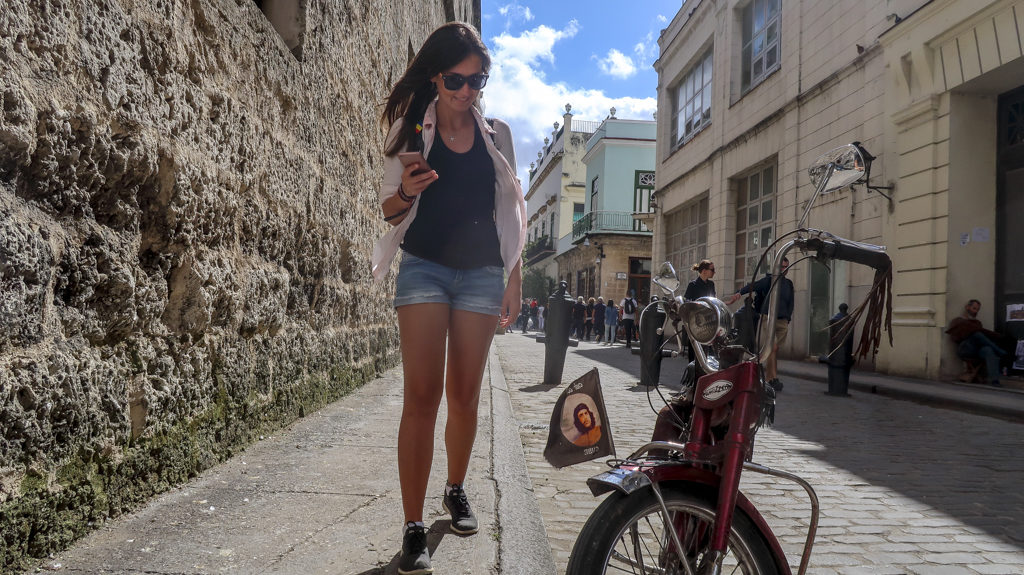
5. Fidel Castro.
The man in power, Fidel Castro. He was the political leader of Cuba who transformed the country in the first communist state in the Western Hemisphere. He was Cuba’s prime-minister until 1976 and then president until 2008.
6. It is home to the world-renowned Cuban cigars.
Some say Cuba has the perfect environment for growing cigar tobacco. The soil, the weather and the experienced Cubans that have been producing these cigars for hundreds of years now, are just some of the most important factors which contribute to the making of the most famous cigars in the world.
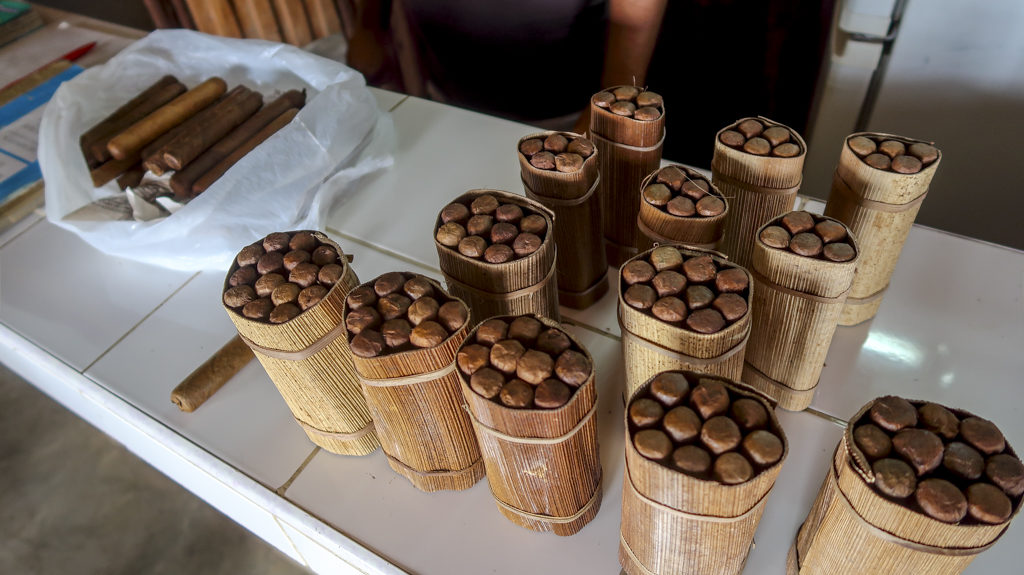
7. The old cars
The majority of the people who own cars, own classics from the ‘50. And they are not only for show off, but they actually use them as a means of transport. We were ready to see them everywhere.
At least that’s what all the photos on the social media suggest.
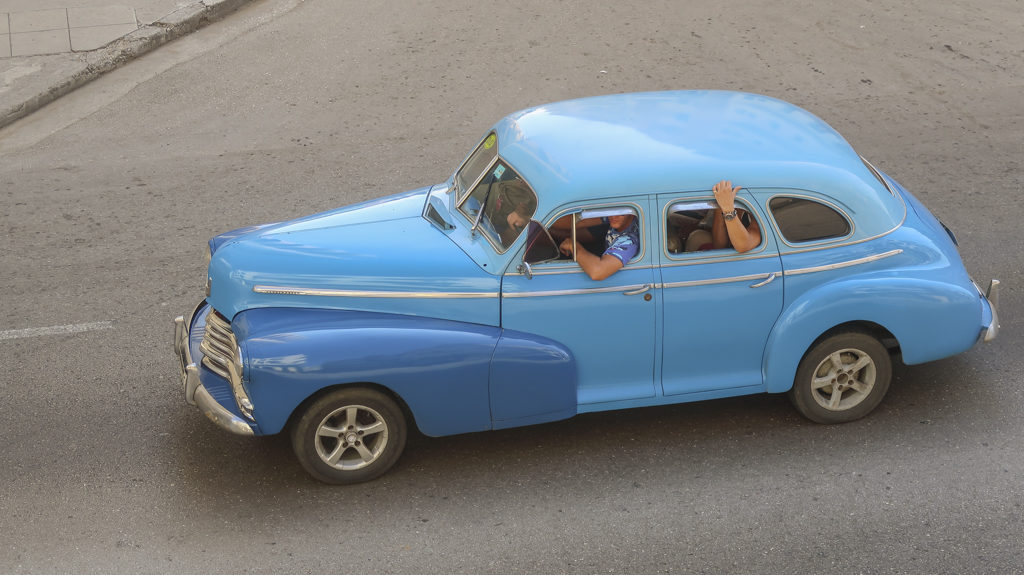
8. The relationship between the nation and U.S. A is not great.
In 1962, US President John F Kennedy announced the permanent embargo on Cuba, or as Cuba called it “El Bloqueo” (“the blockade”).
Even though this commercial, economic and financial embargo imposed by the United States was eased by President Barack Obama, the Trump administration tightened the economic embargo once more.
9. The Buena Vista Social Club.
The legacy of the Social Club, founded in 1932 in Havana, can be seen and heard everywhere in today’s Cuba. There are many who copy the original musicians. Be it on the streets, bars, restaurants, clubs etc.
It always attracts crowds and there’s always a great atmosphere around them.
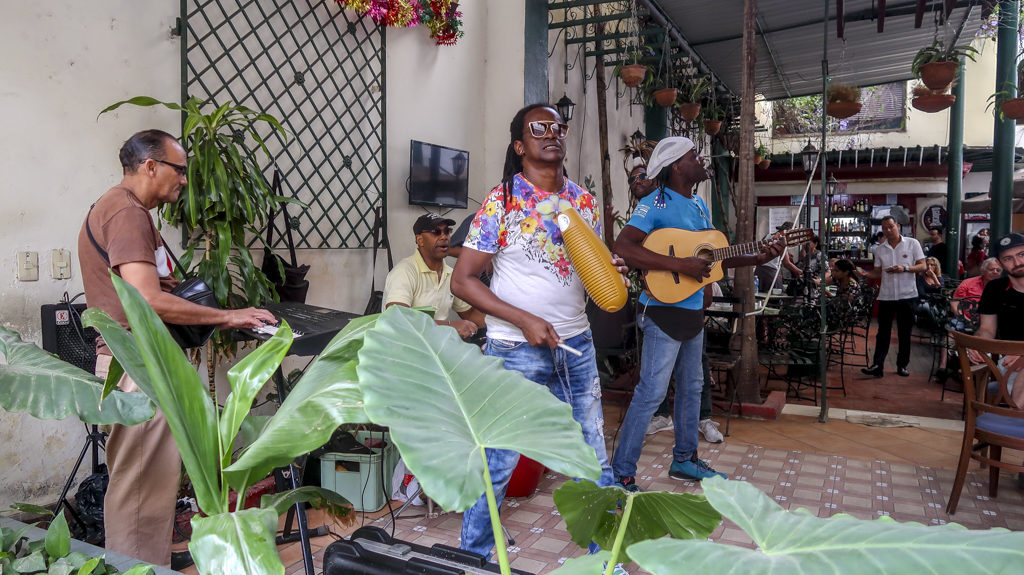
10. Who hasn’t heard of Havana Club Rum?
After all, it is one of the best-selling rum brands in the world. It comes in different colours, tastes, and ages.
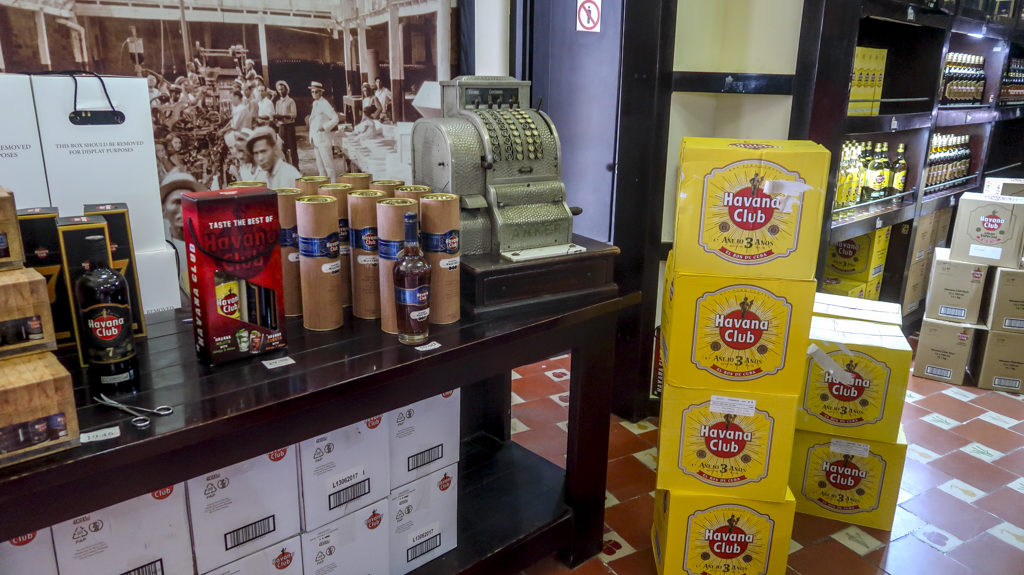
11. And those mouth-watering Cubanos (Cuban sandwiches – as seen in the Movie “Chef”)
Which many argue that it actually originated in Key West and Tampa, Florida, from two early Cuban immigrant communities, in Florida. But they are with no doubt part of the Cuban culture.
12. Havana..uh la la!
Of course, everybody knows, by now, that half of Camila Cabello’s heart is in Havana..uh la la 😜
12 Things we know about Cuba (after spending 10 days there)
1. Cuba’s motto is:
“Patria o Muerte”. It is written on their currencies and all kind of propaganda banners and so on. And if you are lucky enough to assist at a public event, you will definitely hear people saying it.
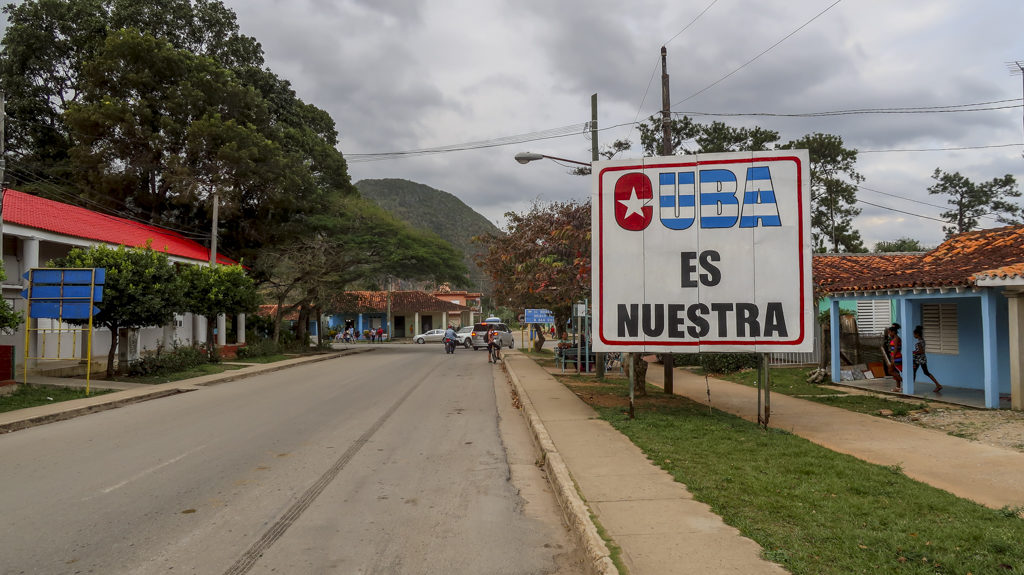
2. It is one of the safest countries we’ve visited so far.
When we first arrived in Havana we didn’t think it would be a safe place. Many of the buildings look like they’ve been bombarded, the streets are dirty and smelly, there is not much light during night time, the people are just hanging around outside their houses or blocks of flats.
We didn’t feel so comfortable. However, we soon understood that we are actually in one of the safest countries in the world. Day or night, no matter the part of the city we were in, we walked with the camera around our neck and nobody seemed interested in any dodgy business.
We have been assured even by the locals that we don’t need to worry about theft or any violence related crimes.
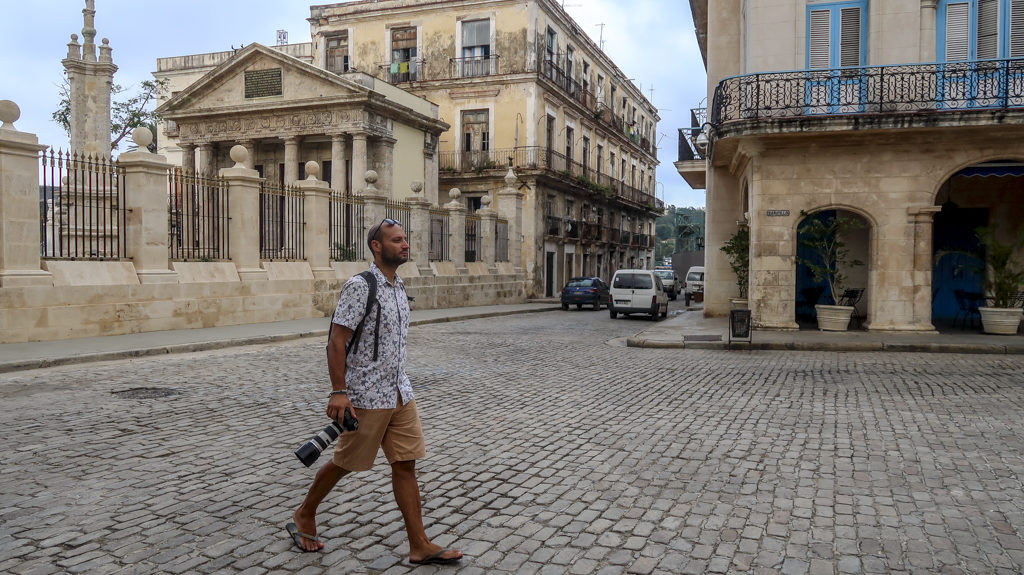
3. Americans traveling to Cuba have it hard.
Theoretically, they could face a fine of up to $250,000 and up to 10 years in jail if they ’re caught violating the law. But there are so many American tourists
Apparently, it is not illegal to go to Cuba, but it is illegal to spend money there.
4. Average wage.
We were surprised to hear that the average wage is $25/Month. However, people there do have free health care and free education amongst other benefits.
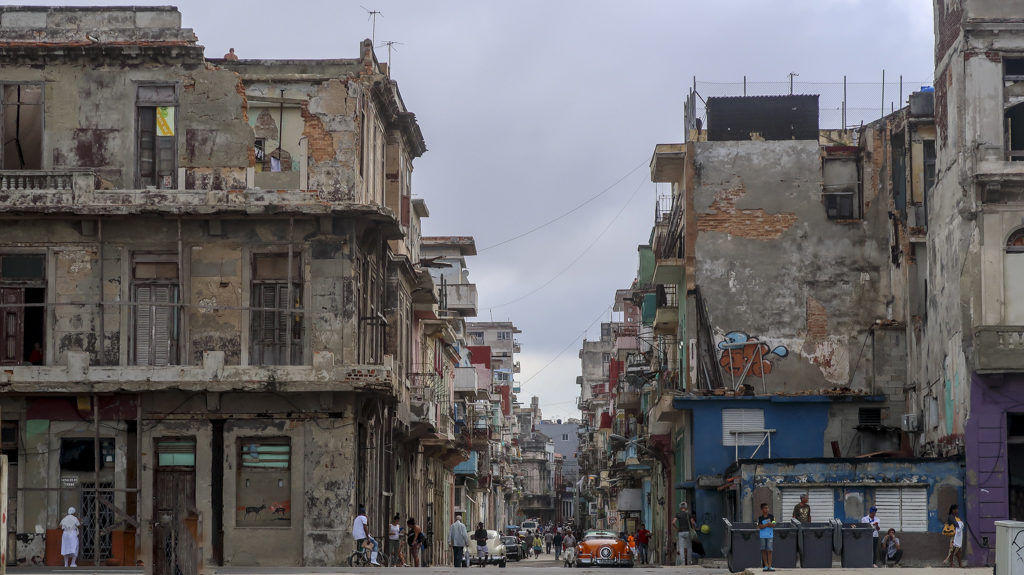
5. Lack of Internet.
We didn’t know that getting connected to the Internet would be such hard work. And not to mention that the access is limited and most of US’ websites will be restricted.
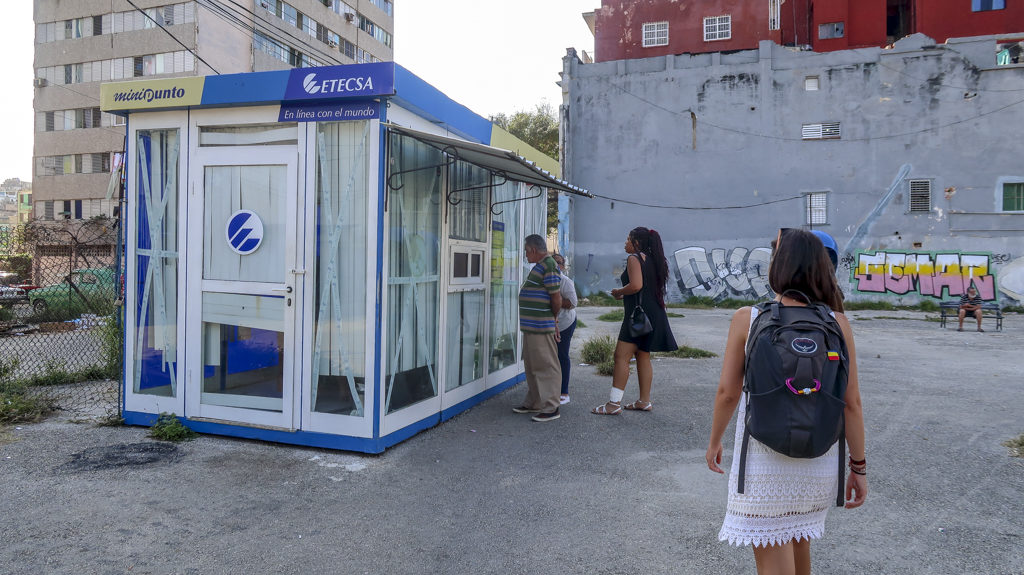
6. Queuing in this country is…different.
In Cuba, there’s a queue for almost everything. And usually, when we queue, we stay in a line. But here, you’ll see a gathering of people, some of which go and come back as they please.
On top of that, they skip the line whenever they please. Or at least this is how it may seem if you are not a local. But pay attention and you will always hear someone asking “El ultimo?” (Meaning “the last one?”).
Here you will understand more about the very last person that arrives in the queue. And how this individual is the most important character in the scene.
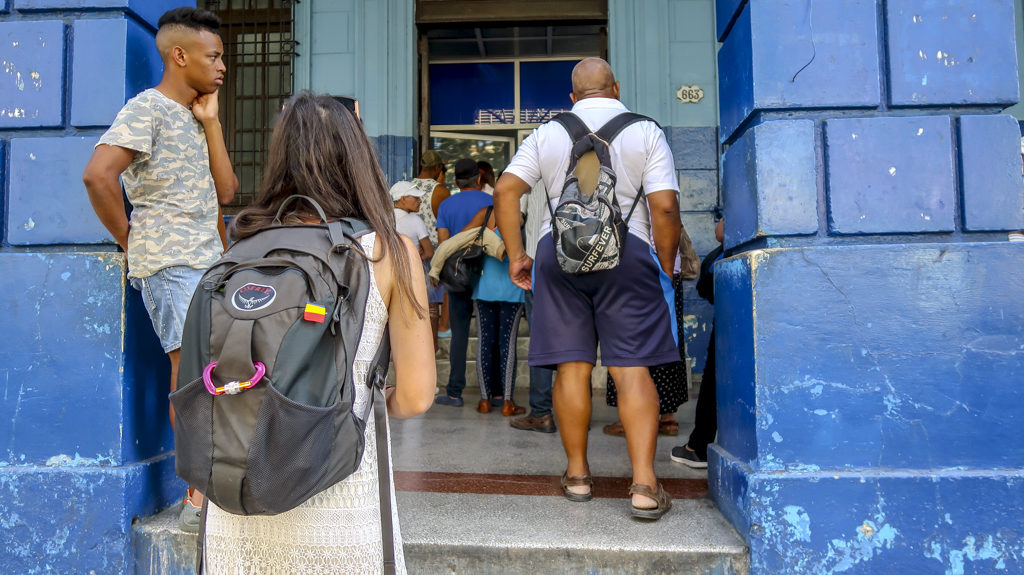
7. “No drone” policy.
After visiting and understanding how the system works, it seems only normal that drones are not accepted inside the country. There is a strict “No Drone” policy.
Not only you are not allowed to fly it, but you will not be given access to enter the country if you have one. Unless, of course, you declare it to Customs and leave it in their custody until you leave the country.
8. Talk about money and not one, but two currencies (CUP and CUC).
Cuba has two currencies. One for locals and one for tourists. The CUC (=~1 USD) is 25 times more valuable than the CUP. At first, it may seem complicated. But slowly, slowly you’ll get the hang of it. Is it fair? Not at all. But hey, tourists have money, right?!
Unless you see the price written black on white (no matter the currency), expect to pay more than the actual price, just because you’re not a local and have no idea what the real value is.
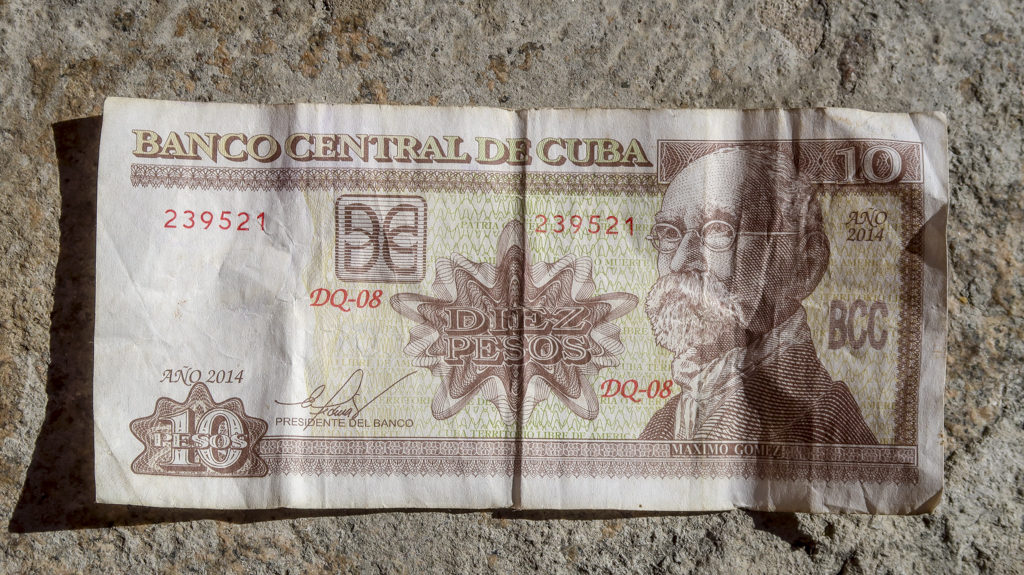
9. Out means out
Cubans who leave the country and don’t return for more than 2 consecutive years lose their citizenship.
10. Could be better
We only found a few people who said they’re not happy with the system. After all, they do get a lot of free stuff. The only thing is that they don’t earn enough to live a luxury life or to travel. The few people that do travel, go on holiday to Russia or Guinea.
11. The shiny classic cars…
…which Instagram is full of, are not random cars owned by random people. You will find these cars in the touristy area of Havana, in front of the big hotels and tourist attractions. They are used for city tours.
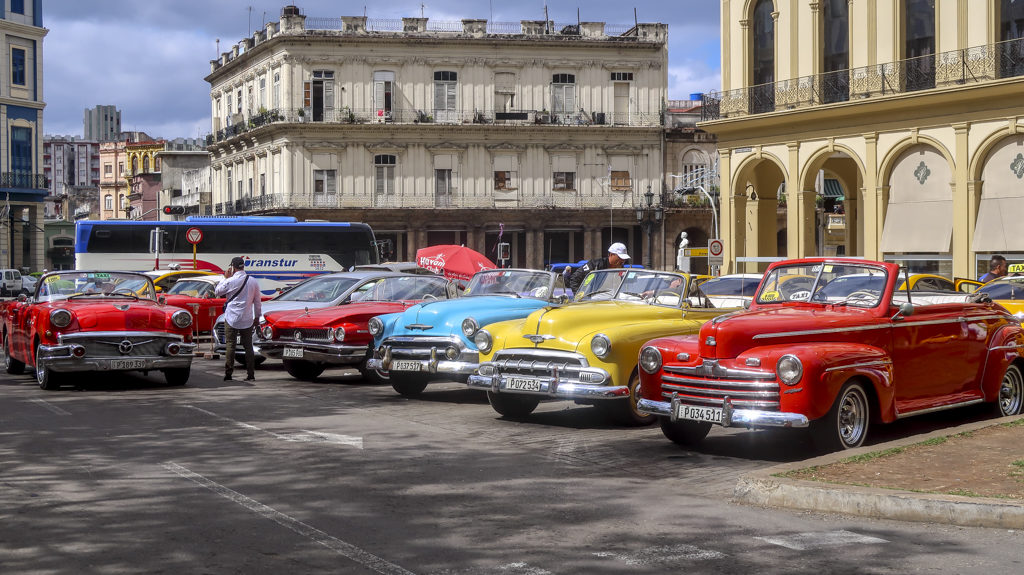
The ones you do see on the streets are not as shiny and so well maintained and not as many. Most of the vehicles are of American origin from the ’50s and ’60s. The rest are mixed with old Russian and Romanian cars. Lately, some new additions were brought into the country – German and French brands. These are new but owned by the government.
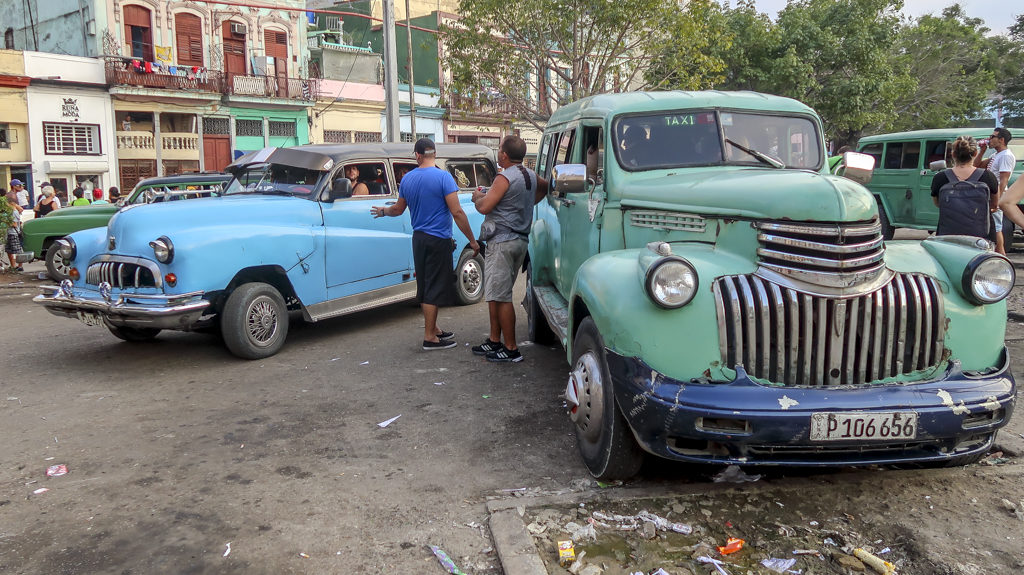
12. Extra money
Having a business on the side seems to be the thing in Cuba. It’s like every single person has a house/room to rent (casa particular, Airbnb) and everybody seems to be a taxi driver. No need to look far and hard for any of the two.
Understandably though, when you think that an Airbnb per night can cost 20USD. The wages for one month, almost.
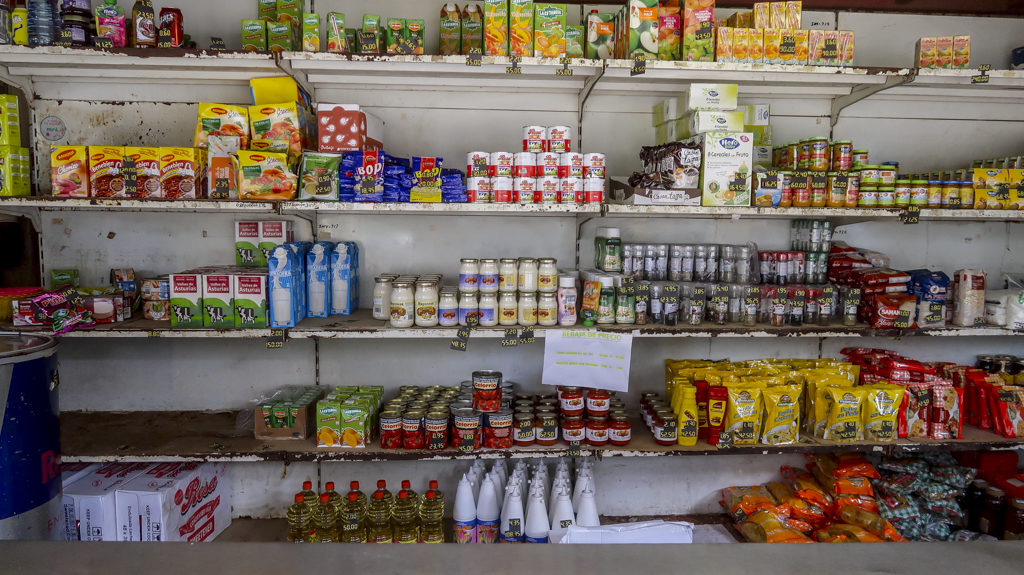

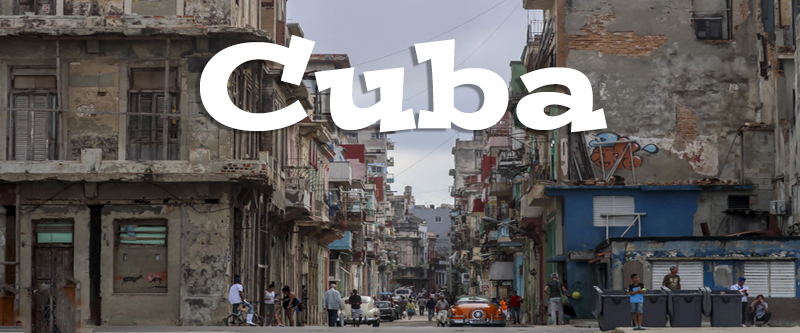

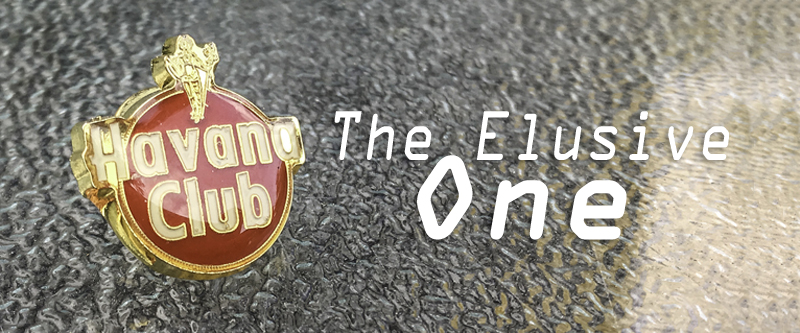
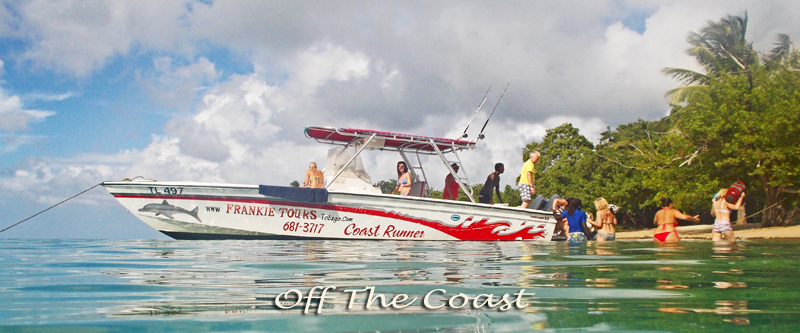
July 26, 2018 @ 8:11 am
Reading your lines is so relaxing and full of informations. I really felt like being there…keep up the good job and have fun around the world
October 4, 2018 @ 2:28 pm
I am continually browsing online for posts that can assist me. Thx!